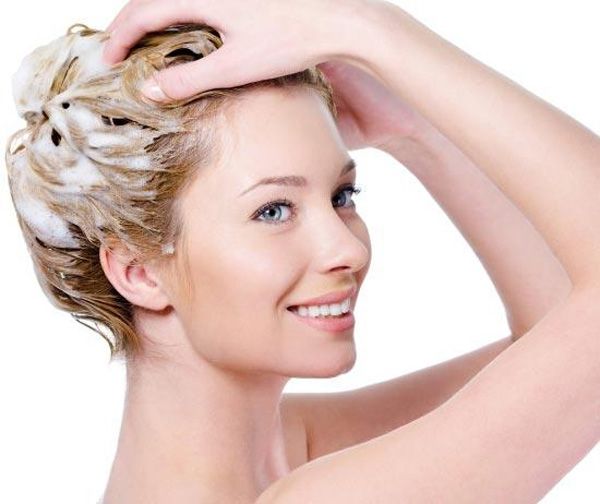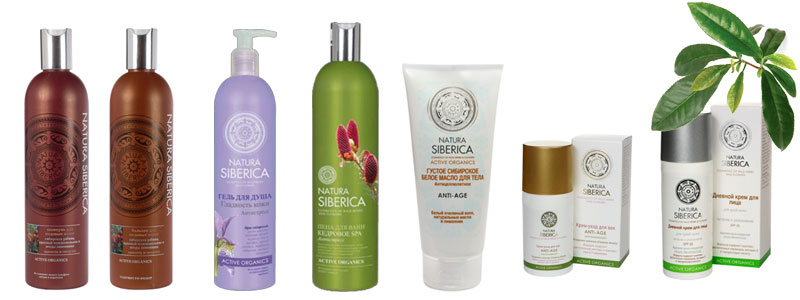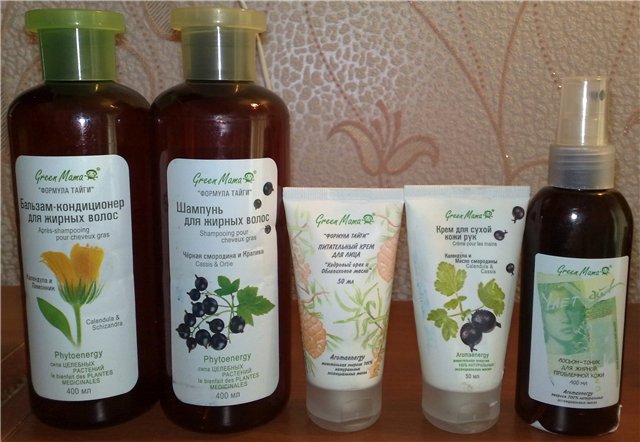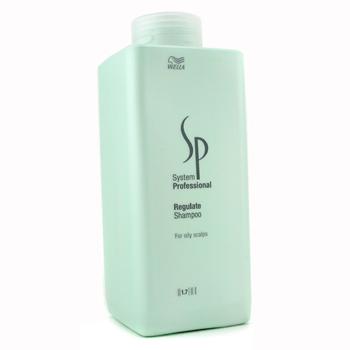Content
- How to choose the right shampoo?
- What are the functions of oily hair shampoo?
- Varieties of good shampoos for oily hair and their properties.
- Top best shampoos for oily hair photos
- What is important in choosing a good shampoo for oily hair?
- Determine the type of hair.
- We pay attention to the label.
- Other additives.
- And a few more important things to know.
- Final selection and quality control.
What is the best shampoo for oily hair today? Well-groomed hair is one of the most important components of the image. They meet by appearance: how a person looks, including the condition of his hair, says a lot.
How to choose the right shampoo?
That is why the health and beauty of hair is given such great importance. For the same reason, there are so many oily hair care products nowadays. We will not dwell on conditioners, masks, balms, etc. What is the main remedy? What is used by everyone, without exception, regardless of gender and age? Of course, we are talking about shampoo.
Shampoo is the most important tool, the use of which directly affects the condition of your hair.
 What are the functions of oily hair shampoo?
What are the functions of oily hair shampoo?
1. The most important thing is cleansing.
The main purpose of any shampoo for oily hair and root nutrition is to remove dirt and oil from the hair and scalp. 2. Restoration and strengthening of the hair structure.
3. Removal of static electricity.
4. Moisturizing and nourishing hair.
5. Therapeutic effect.
6. Preservation of the brightness of the shade of dyed hair (in addition to caring for the health of the hair after dyeing).
7. Volume increase and other cosmetic effects.
Varieties of good shampoos for oily hair and their properties.
There are a lot of shampoos for oily hair now, and sometimes it can be difficult to navigate in all their diversity. Let's try to determine what types of shampoos exist.
1. By consistency, all shampoos are divided into liquid and thick (creamy).
2. By color - having color and transparent.
3. By smell - having a pronounced aroma and odorless.
4. According to the types of hair for which the shampoo is intended - products for normal, dry, oily hair and for hair of a combined type.
Shampoos for thin and damaged (colored) hair stand out separately. 5. According to the composition, namely the presence or absence of sulfates as a washing base - shampoos with sulfate and organic bases.
6. By appointment - medical, technical (for example, for dyed hair).
How do you know which shampoo is right for you? After all, an improperly selected care product can cause irreparable damage to the health of the hair, and the consequences of its use will have to be considered for a long time.
Top best shampoos for oily hair photos

Shampoo line for oily hair Natura Siberica

Shauma 7 herbs are ideal for oily hair.

Green Mama natural shampoo for oily curls consists of 98% natural ingredients

Wella Regulate Professional Women's Shampoo for Oily Hair
What is important in choosing a good shampoo for oily hair?
Physical parameters (color, smell, consistency, uniformity) are, without a doubt, an indicator of the quality of the product. However, when choosing the best shampoo, focusing only on them would be a mistake.
It is much more important to know your hair type, because (and we saw this above) different shampoos are designed for different types, which differ significantly from each other in their composition. The use of hair care products without taking into account this factor can end badly for your hair. So-called universal shampoos suitable for all hair types are not a good choice. At best, they will not achieve the desired effect (well, it is impossible in one chemical formula to sum up the differing from each other, and sometimes directly opposite, features of all types of hair!), At worst, they will harm.
Determine the type of hair.
There are four main types of hair:
1. Shampoos for normal hair types.
The owners of such hair can only be envied!
Hair is naturally flexible, shiny, easy to comb, obedient, has volume. It is clear that the main task of shampoo for normal hair is not to destroy the natural beauty and health. Nothing needs to be corrected here.
2. Dry hair
weak, brittle, hard to the touch, often split at the ends, poorly combed, difficult to style.
Such hair can be from nature. However, you should be aware that frequent dyeing, bleaching and perm destroy the hair's natural lubrication and disrupt the sebaceous glands, as a result of which initially healthy hair can become dry. Shampoo for this type of hair contains a soft organic base that does not cause additional drying. The composition must necessarily include fats, oils, trace elements and bioadditives, since it is important to ensure the restoration and normal nutrition of damaged hair.
3. Oily hair
This type is easily recognizable by the unpleasant greasiness of the hair, the peculiar smell, the tendency to increase pollution and the need to wash more often (usually every two days).
Shampoo for oily hair contains substances that can intensively cleanse, reduce itching and irritation of the scalp, and often have an antimicrobial effect.
4. Combination hair type
Fatty roots;
split ends, brittle ends - this is usually the trouble of long hair. The composition of shampoos for oily hair, designed to care for such hair, should be selected so as to have two effects at once: degrease and moisturize.
Often, as separate types, they talk about thin and damaged hair.
Thin hair does not have volume. They are weak and brittle. Shampoos designed for fine hair should be able to increase the diameter of the hair shaft in order to achieve noticeable volume. In addition to the above, such hair needs to be strengthened and nourished.
Hair becomes damaged after frequent and uncontrolled "experiments": dyeing, bleaching, styling products, curling, etc. They need to restore their structure while maintaining cosmetic effects (for example, maintaining the brightness of the shade after coloring), nutrition and normalization of metabolism.
We pay attention to the label.
When choosing a shampoo, its composition is of no small importance. It should be remembered that high-quality shampoos often contain 15-40 different components. When studying the label, note that the greater the proportion of a particular substance in the composition, the closer it is to the top of the list.
surfactant
To perform the main function (cleansing) shampoo helps its washing base. That is what you should pay attention to in the first place.
A huge selection of shampoos awaits us on supermarket shelves, but after carefully studying their composition, it becomes clear that sulfates are the basis (surfactant - surfactant) in most cases. These components have a strong cleansing effect for oily hair and their cleansing, and are responsible for the formation of a thick lather. However, they are also aggressive chemicals that can degrease much more than necessary, thereby leading to disruption of the normal functioning of the sebaceous glands.
Organic base
Shampoos containing a mild organic base are not so easy to find. Usually they can only be purchased at pharmacies or specialized stores. Such shampoos have a gentle effect without disturbing the natural protective layer, restore and nourish the hair, preserve the color of dyed hair, do not change the pH of the scalp, do not cause itching and irritation. However, they have a weaker cleansing effect, so they are often unable to remove silicones and styling products from hair. The soft base doesn't lather well, which means you have to use a little more shampoo than you're used to. Long hair has to be washed several times. In addition, the hair takes time to adapt to such a shampoo, and until then, it can look dull and lifeless. Another disadvantage is the high cost of the product.
Other additives.
In addition to the washing base, all shampoos contain a huge variety of additives, both important for hair health and useless.
Let's get to know some of them:
- conditioning agents. The most popular among them are silicone oils. They moisturize, nourish, protect hair from damaging factors, remove static electricity, and are able to glue hair scales, giving them shine and beauty.
- Collagen, elastin, keratin - natural additives that can restore the structure of damaged hair, give thin hair volume.
- Vitamins, minerals, amino acids, oils and extracts from plants nourish, moisturize and restore hair.
- Synthetic moisturizers. As the name suggests, their main function is to attract and retain moisture in the hair and scalp.
- Substances that protect against ultraviolet radiation. They are especially relevant for dry hair.
- Additives that do not affect the health of the hair (dyes, fragrances, preservatives, thickeners, pH regulators; substances that increase viscosity; as well as substances that help dissolve all shampoo components).
From the point of view of importance for the choice of shampoo, the above substances are not of great importance.
However, if you're allergic, you should buy a shampoo with as few additives as possible, as well as opt for mild organic bases (sulfates often cause allergies).
And a few more important things to know.
Medicated shampoos for oily hair are the cure. They are designed to fight dandruff, cure diseases of the scalp (dermatitis, eczema), prevent excessive hair loss and early baldness. You cannot use them on your own. Medicated shampoos for oily hair are prescribed by a doctor. It also regulates the frequency and duration of application.
Professional hair care products should be used with caution, preferably only when necessary, as their effect on the hair structure can be very intense and their uncontrolled use will do more harm than good.
Final selection and quality control.
Let's summarize what you should first of all focus on when choosing a shampoo, which is the most important in this matter.
1. Matching shampoo to hair type.
2. Surfactant.
Preference should be given to gentle natural bases. 3. Avoid a large number of additives with a tendency to allergies.
4. Do not use medical and professional shampoos uncontrollably.
So, you have made your choice and bought a shampoo. How can you check its quality at home? It is necessary to dilute a small amount of shampoo in a glass of water and see if precipitation occurs after a while or not. Sediment indicates poor quality goods. It is not recommended to use this shampoo.
Finally, the experiment will dot the I: washing your hair with the chosen shampoo and evaluating your feelings after that. The appearance of itching, irritation; increased "fluffiness" of hair - signs of an unsuccessful choice. Only by applying the shampoo in practice, you can make the final decision on whether to use the already purchased shampoo or purchase a new one.
You can also use other products to help cleanse the hair at the roots.
I hope this article will help you choose the right, right for you, and most importantly - safe shampoo for oily hair. Remember, the most important thing is health; it is easy to destroy it, but it is very difficult to restore it. Therefore, make no mistake in your choice.
PS If you liked the article, please press the buttons of social networks.

It is clear that each of us has our own hair type. I think it's all about choosing the right organic products. If you want to find the right shampoo, you need to look for more than just organic bottle labels.